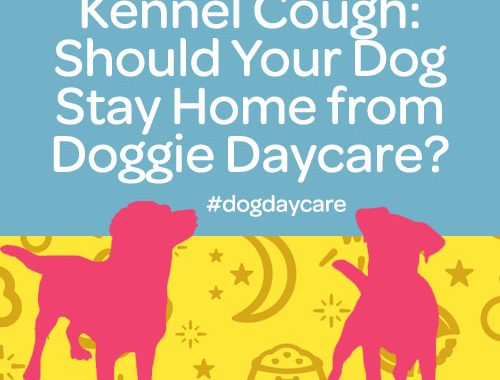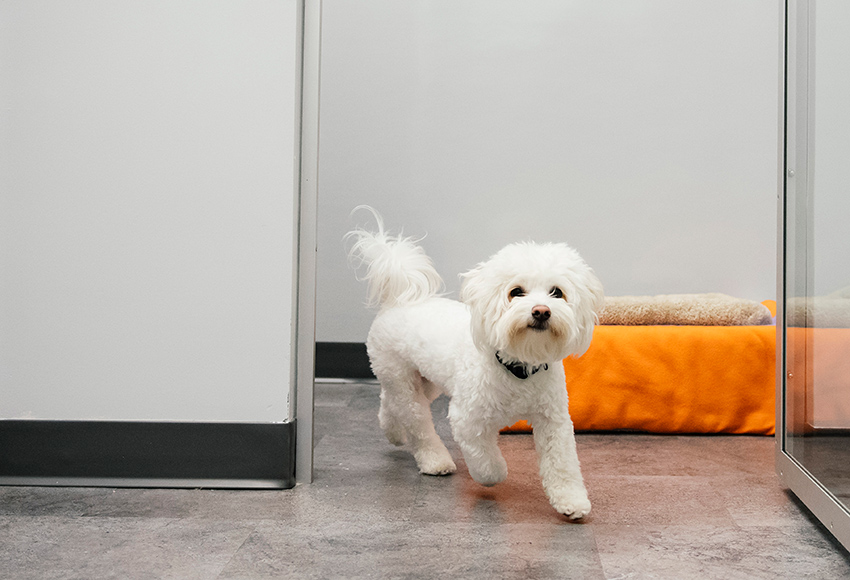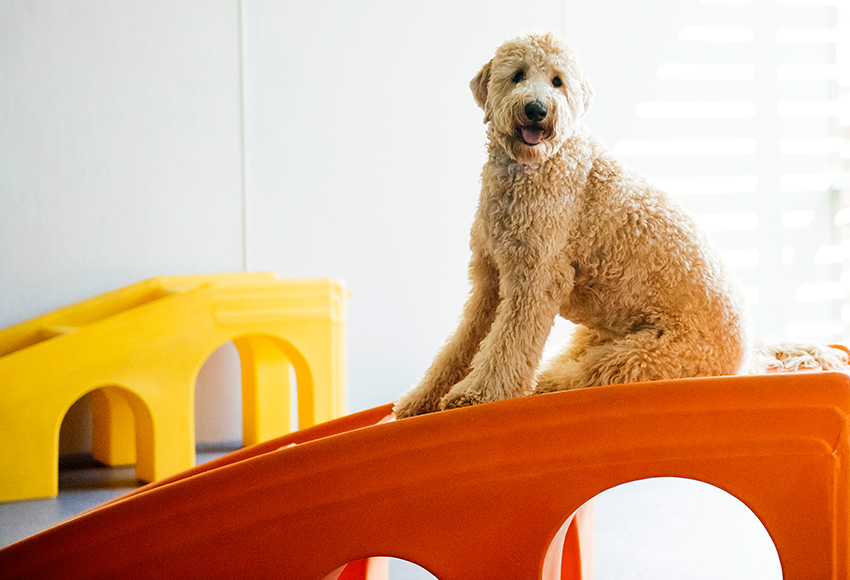Kennel Cough: Should Your Dog Stay Home From Doggie Daycare?

When is your dog’s cough something more serious, and when should you avoid bringing him to doggie daycare? If your dog is coughing or hacking for an extended period of time (several days), we kindly ask that you do not bring him into daycare. Below is some helpful info on determining if your pup has ‘kennel cough’ or canine cough. Please let us know if you have ANY questions!
NOTE: Even in the most hygienic, well-ventilated, spacious dog boarding kennels the possibility of a dog catching ‘kennel cough’ exists. Canine cough can be acquired from your neighbor’s dog, from an outdoor dog park, or while sitting with your dog on a sidewalk restaurant patio. Your vaccinated dog can STILL pick up kennel cough even after receiving the Bordetella vaccine- much like the flu or the common cold, there are many variations to kennel cough, and some are covered by the vaccination while others aren’t.
From PetMD: Kennel cough, the common name that is given to infectious canine tracheobronchitis, is a very highly contagious respiratory disease among dogs. As the name of the disease suggests, it is typified by inflammation of the trachea and bronchi. This disease is found throughout the world and is known to infect a very high percentage of dogs at least once during their lifetime. It is also medically referred to as tracheobronchitis and Bordetella.
Symptoms
- Dry hacking cough is the most common symptom
- Cough may sound like honking
- Retching
- Watery nasal discharge
- In mild cases, dogs would likely be active and eating normally
- More coughing upon waking up or after activity
Much like the common cold, the bacteria that causes kennel cough floats through the air after being expelled by a cough. Other dogs in the same space may inhale the air containing infectious agents, and boom! They have kennel cough. The reason this disease seems so common and is commonly called “Kennel” cough, is that wherever there are numbers of dogs confined together in an enclosed environment such as a kennel, animal shelter, or indoor dog show, the disease is much more likely to be spread. The same is true with the “colds” spread from human to human… they are much more likely to occur in a populated, enclosed environment such as an airplane, elevator, or office. All it takes for contagion to occur is a single source (infected dog), an enclosed environment, and susceptible individuals in close proximity to the source of the infection. Infected dogs can spread the organisms for days to weeks even after seeming to have fully recovered!
HOW IS IT TREATED?
Many dogs that contract kennel cough will display only minor signs of coughing that may last seven to ten days and will not require any medication at all. The majority of dogs with the disease continue to eat, sleep, play and act normally… except for that annoying, dry, non-productive coughing that seems so persistent. Treatment is generally limited to symptomatic relief of the coughing with non-prescription, and occasionally prescription, cough suppressants. If the dog is running a fever or there seems to be a persistent and severe cough, antibiotics are occasionally utilized to assist the dog in recovering.
HOW IS IT PREVENTED & AVOIDED?
In order to avoid kennel cough, you must either a.) keep your dog away from all other dogs or b.) get your dog vaccinated and chose to use dog daycare and dog boarding at locations like Dogtopia where special attention is paid to keep our dog clients healthy.
Be aware that vaccinating with just the commercial kennel cough vaccine alone (contains only the Bordetella agent) may not be fully protective because of the other infectious agents that are involved with producing the disease. Some of the other agents such as Parainfluenza and Adenovirus are part of the routine vaccinations generally given yearly to dogs. The intra-nasal Bordetella vaccine may produce immunity slightly faster than the injectable vaccine.
NOTE: Any vaccine takes days to weeks to stimulate the dog’s protective immunity to the disease. Vaccinating a dog the day it is exposed to disease may not be protective. If you plan to board your dog, or protect it from exposure, remember to vaccinate a few weeks prior to potential exposure to allow full protective immunity to build up.






